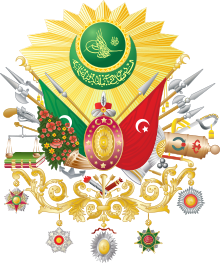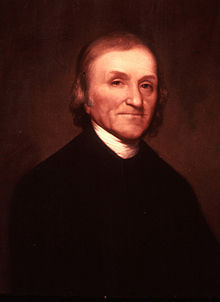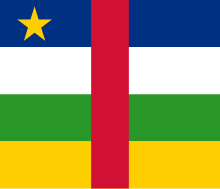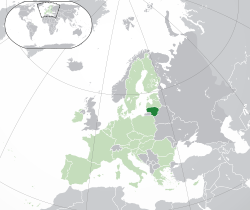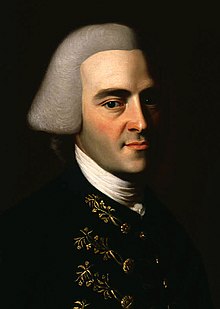Portal:Politics
| Main | Topics and categories | Tasks and projects |
The Politics portal
Politics (from Ancient Greek πολιτικά (politiká) 'affairs of the cities') is the set of activities that are associated with making decisions in groups, or other forms of power relations among individuals, such as the distribution of resources or status. The branch of social science that studies politics and government is referred to as political science.
It may be used positively in the context of a "political solution" which is compromising and non-violent, or descriptively as "the art or science of government", but also often carries a negative connotation. The concept has been defined in various ways, and different approaches have fundamentally differing views on whether it should be used extensively or in a limited way, empirically or normatively, and on whether conflict or co-operation is more essential to it.
A variety of methods are deployed in politics, which include promoting one's own political views among people, negotiation with other political subjects, making laws, and exercising internal and external force, including warfare against adversaries. Politics is exercised on a wide range of social levels, from clans and tribes of traditional societies, through modern local governments, companies and institutions up to sovereign states, to the international level.
In modern nation states, people often form political parties to represent their ideas. Members of a party often agree to take the same position on many issues and agree to support the same changes to law and the same leaders. An election is usually a competition between different parties.
A political system is a framework which defines acceptable political methods within a society. The history of political thought can be traced back to early antiquity, with seminal works such as Plato's Republic, Aristotle's Politics, Confucius's political manuscripts and Chanakya's Arthashastra. (Full article...)
Selected article
The League of Nations was an international organization founded after the First World War at the Paris Peace Conference in 1919. The League's goals included disarmament; preventing war through collective security; settling disputes between countries through negotiation and diplomacy; and improving global welfare. The League was a government of governments, with the role of settling disputes between individual nations in an open and legalist forum. The League lacked an armed force of its own and so depended on the Great Powers to enforce its resolutions, which they were often very reluctant to do. The League ultimately proved incapable of preventing aggression by the fascist powers in 1930s. The onset of the Second World War made it clear that the League had failed in its primary purpose—to avoid any future world war. The United Nations effectively replaced it after World War II and inherited a number of agencies and organisations founded by the League.
Featured picture

Dr. Javier Solana was the High Representative for the Common Foreign and Security Policy and the Secretary-General of both the Council of the European Union (EU) and the Western European Union (WEU). This photograph shows him discussing with students of RWTH Aachen University, one day before receiving the International Charlemagne Prize of the city of Aachen.
Selected quote
Selected biography
John Hancock (January 23, 1737 [O.S. January 12, 1736] – October 8, 1793) was an American Founding Father, merchant, statesman, and prominent Patriot of the American Revolution. He served as president of the Second Continental Congress and was the first and third governor of the Commonwealth of Massachusetts. He is remembered for his large and stylish signature on the United States Declaration of Independence, so much so that in the United States, John Hancock or Hancock has become a colloquialism for a person's signature. He also signed the Articles of Confederation, and used his influence to ensure that Massachusetts ratified the United States Constitution in 1788.
Did you know (auto-generated) -

- ... that Ken Russell went on international yo-yo tours before turning to politics?
- ... that one of the arguments made by the Simla Deputation for increasing Muslim representation in Indian politics was that they had ruled India under the Mughal Empire?
- ... that American journalist and activist Clara Leiser traveled to Nazi Germany frequently, and documented the plight of families of political prisoners?
- ... that Olga Onuch is believed to be the first professor of Ukrainian politics in the English-speaking world?
- ... that Angel Joy Chavis Rocker, a guidance counselor with no political experience, was the first black woman to run for President of the United States as a Republican?
- ... that an excavation for 75 Wall Street revealed an old crock linked with a leader of the Tammany Hall political machine?
More did you know...
- ...that Thutmose I was the first Pharaoh to be buried in the Valley of the Kings?
- ...that the Zimbabwe Human Rights NGO Forum recorded over 1,200 violations of human rights in Zimbabwe by the law enforcement agencies from 2001 to September 2006?
- ...that the ideology of the Romanian National Renaissance Front has been described as "operetta fascism"?
- ...that in the 1984 Brown v. Hotel and Restaurant Employees case, the U.S. Supreme Court upheld a New Jersey gaming law requiring union leaders to be of good moral character?
- ...that co-founder of the Saudi Civil and Political Rights Association Mohammed al-Bejadi spent most of 2011 in prison?
- ...that on the death of Governor George Madison, Kentucky lieutenant governor Gabriel Slaughter was refused the title of "governor" by a hostile state legislature and was referred to as "acting governor" for the duration of his three-year administration?
In this month
- May 5, 2005 – A General Election in the United Kingdom sees Tony Blair's Labour government returned to office with a reduced majority of 66.
- May 14, 1948 – The Declaration of Independence of Israel is made.
- May 18, 1948 – The first Legislative Yuan of the Republic of China officially convenes in Nanking.
News and Current events
- August 11: 4 local government areas in New South Wales, Australia locked down after COVID-19 case
- August 11: Australia: AstraZeneca vaccine access expanded by Victorian government
- August 1: Australia: Victorian lockdown lifted
- July 29: Tunisia's president dismisses prime minister, suspends parliament
- July 25: Australia: Wikinews interviews Reg Kidd, mayor of the City of Orange, about COVID-19 lockdown and local government
- July 23: South Australia enters week-long lockdown to contain COVID-19 Delta variant spread
- July 21: Technological University Dublin senior lecturer Dr Lorcan Sirr speaks to Wikinews on housing market in Ireland
- July 21: Three rural councils in New South Wales, Australia enter 7-day lockdown
- July 21: Australia: Victoria lockdown extended by a week with 85 active cases recorded
- July 15: California governor signs new state budget, eligible Californians to get stimulus payments
Topics and categories
General images
Related portals
Associated Wikimedia
The following Wikimedia Foundation sister projects provide more on this subject:
-
Commons
Free media repository -
Wikibooks
Free textbooks and manuals -
Wikidata
Free knowledge base -
Wikinews
Free-content news -
Wikiquote
Collection of quotations -
Wikisource
Free-content library -
Wikiversity
Free learning tools -
Wiktionary
Dictionary and thesaurus





